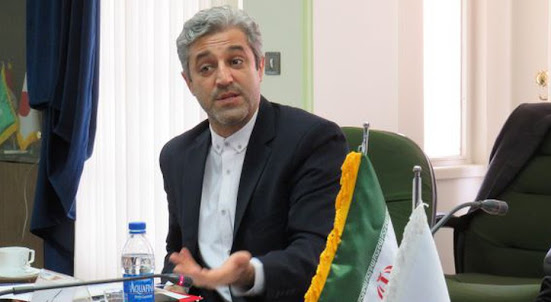A lesson in Israeli public relations
In 1993, in the Oslo Accords, Arafat was given a foothold in Judea and Samaria and Gaza, along with control over the residents of these areas. The autonomy envisioned by Menachem Begin, meanwhile, did not include Arafat’s Palestinian Liberation Organization, although it did crack open the door for exactly that. Bandar has a score to settle with Arafat—one might say a bloody one.Daniel Pipes: Is the Israel Victory Project still needed?
In the years he served as Saudi Arabia’s ambassador in Washington, he was one of the more influential figures in the United States and on certain issues pertaining to the Middle East, the energy industry and terror; he was even stronger than then-U.S. President George W. Bush. Bandar was the one who strong-armed Bush and his secretary of state, Colin Powell, to publicly declare U.S. recognition of the Palestinian right to an independent state of their own.
The Bush administration at the time went even further than the Clinton roadmap. It was Bandar who pressured Bush to allow many Saudi individuals, including those tied with Osama bin Laden and the Sept. 11 attacks, to board planes and flee the United States. For comparison’s sake, to this day one poor Jew, former spy Jonathan Pollard, cannot even leave the state of New York let alone fly to Israel.
Bandar did not become pro-Zionist overnight, but when it came to his narrative regarding the Six-Day War, he noted that it didn’t start due to wanton Israeli “aggression,” rather then-Egyptian president Gamal Abdel Nasser’s decision to close the Straits of Tiran.
This moment in time, with the Saudis attacking the Palestinians, exposes the fact that peace with the UAE and Bahrain is essentially peace with the ancient birthmother of Arab nationalism. It was Bandar’s ancestors who rode, swords drawn, with Lawrence of Arabia to liberate most of the Middle East from the Turks during World War I.
Beyond this, the Saudi stance alongside Israel mostly indicates the Arabs’ reduced standing as a global power. They were at their apex in the 1970s and 1980s. From Israel’s vantage point, strategic patience and durability paid off. It appears that true victories aren’t achieved via lightning strikes but through dedicated commitment to a long-term process.
In the outside-in approach, Arab states partially assume Israel’s role to impose defeat on the Palestinian Authority and Hamas. Note the elements of what Khaled Abu Toameh terms their “divorce process:” the emerging warm peace between Abu Dhabi, Manama and Jerusalem; the imam of the Great Mosque in Mecca (who has been banned from Western countries for his crude antisemitism) talking about Muhammad’s friendly relations with Jews; the Arab League unprecedentedly turning down a Palestinian initiative and the Arab states reducing their financial support to the Palestinians by 85%.Tom Gross: Conversations with friends about their lives: Times of Israel editor David Horovitz
Does this mean Israel Victory has been superseded? No. Sunni Arab states unfortunately make up only a portion of the Palestinians’ vast and multifaceted support system. Exceptional public relations prowess, combined with antisemitism, transmogrified the tiny, weak and relatively prosperous Palestinian population into the world’s most prominent human rights issue, one which benefits from immeasurably more solicitude than the far more wretched Syrians or Yemenis.
That support system starts with Iran and Turkey, the only countries – in US Secretary of State Mike Pompeo’s description – to have “vehemently denounced” the recent agreements. Indeed, those two regimes have largely replaced the Arab states (whose last major war with Israel was in 1973) as the Palestinians’ regional stalwarts.
Second, because the foreign policies of Russia and China globally oppose the US, Jerusalem’s tight alliance with Washington makes them both significant Palestinian supporters.
Third, Israel’s Left despises Prime Minister Benjamin Netanyahu, pooh-poohs the recent accords and touchingly believes that Palestinians will be content with a Palestine adjoining Israel.
David talks with Tom Gross about his upbringing, about editing the Times of Israel (and before that the Jerusalem Post), about interviewing Paul McCartney and others, about the difficulties of striving for fair and independent journalism in an era of fakery and misrepresentation, and about life in Israel and beyond.
Peter Beinart, the New York Times and the Coming Campaign to Eliminate Israel
The goal of this campaign is clear: to normalize and mainstream the idea of eliminating a nation. It is to convince a decisive majority of Americans that it would be a good thing, the moral thing, for a nation of eight million people to disappear. The Protocols of the Elders of Zion was once called a “warrant for genocide.” Now, a new warrant is being written.
And it is clear that this campaign will push Jews to the forefront. It is no coincidence that Beinart and Rhodes are Jewish, and that they collaborated in firing the first shot. This indicates that the campaign will be directed at Jews as well. It will seek to convince us to abandon Zionism. To persuade us, in other words, that we do not deserve to live.
There is a very good reason for this.
In the 1970s, former Israeli Air Force chief Benny Peled had a remarkable insight. He said in an interview, “Our enemies had to examine the ingredients of our strength, and they of course discovered the thing that we’ve been shouting at full volume: that our strength is our spirit.”
“And they decided to attack that,” he said. “The Jewish people’s strongest weapon.”
The new campaign to eliminate Israel and Zionism is nothing but that: an attempt to shatter the Jewish spirit. And it has to be this way. Because those advocating elimination are not stupid. They know quite well that Israel is strong and getting stronger, and it is doing so very quickly. They cannot eliminate it in the flesh, but they can, or at least they can try, to eliminate it in spirit.
But the ironic thing is that, whatever their fantasies might be, they cannot win. I do not say this out of hubris or chauvinism. It is a matter of historical record. The Jewish spirit, if it can be called that, has withstood assaults far more horrendous than anything Beinart, Rhodes or the Times could come up with. If we have survived what we have already survived, we can certainly survive them.
The ominous question, however, is how much damage they can do in the meantime. If the historical record teaches us anything, unfortunately, it is that the damage could be quite substantial. We should not look away from what is coming, and we should ready ourselves to face it.








































